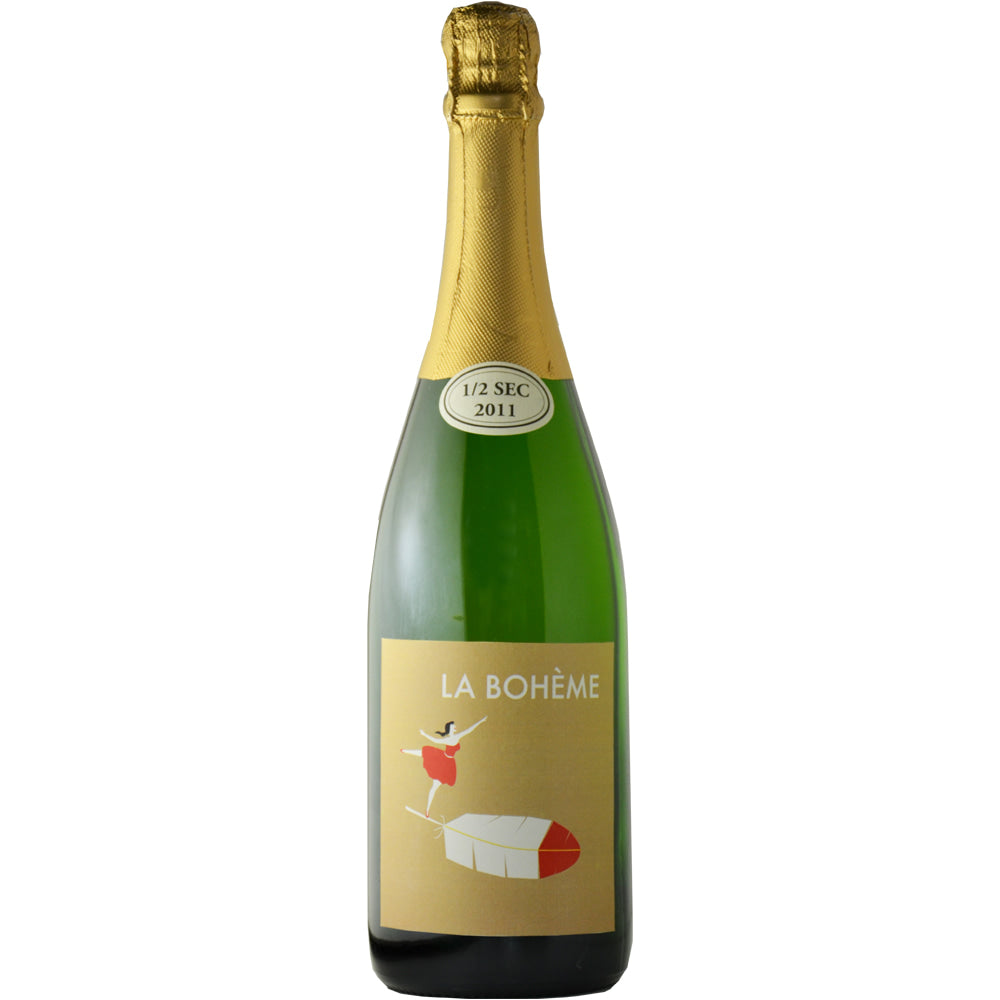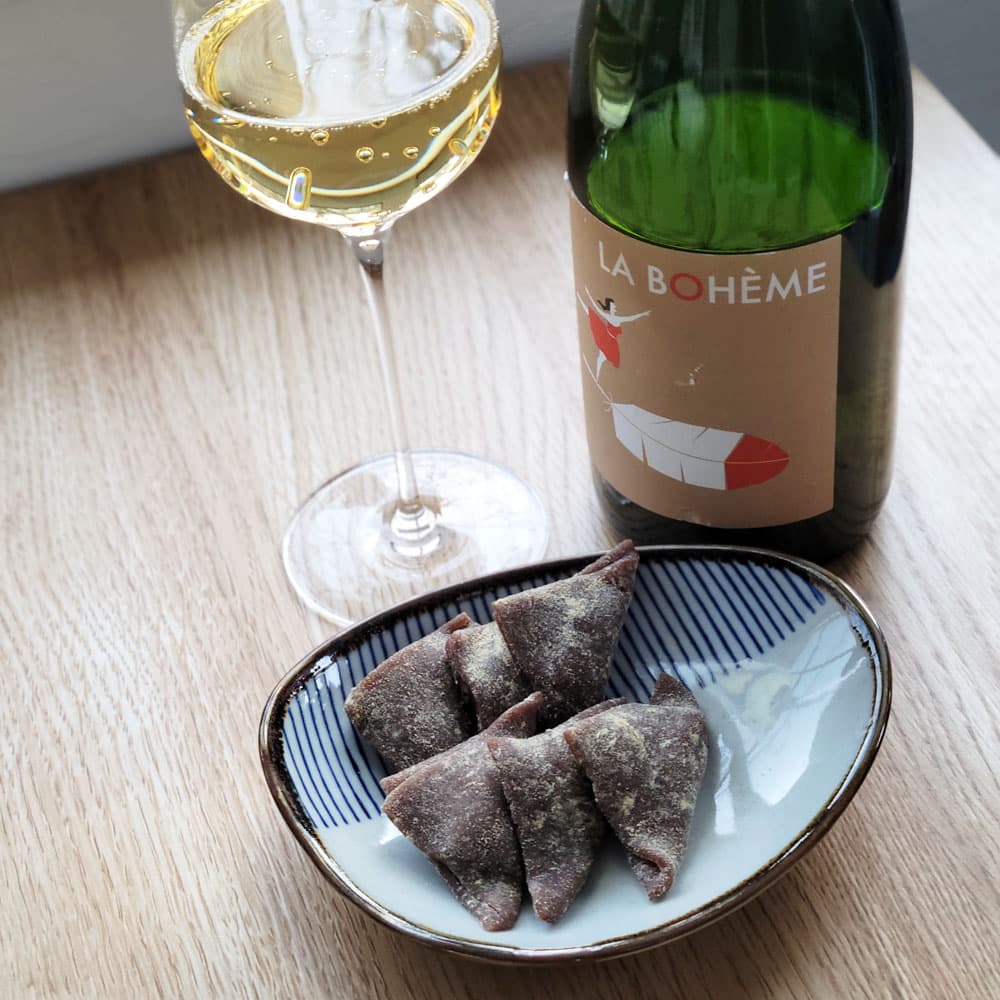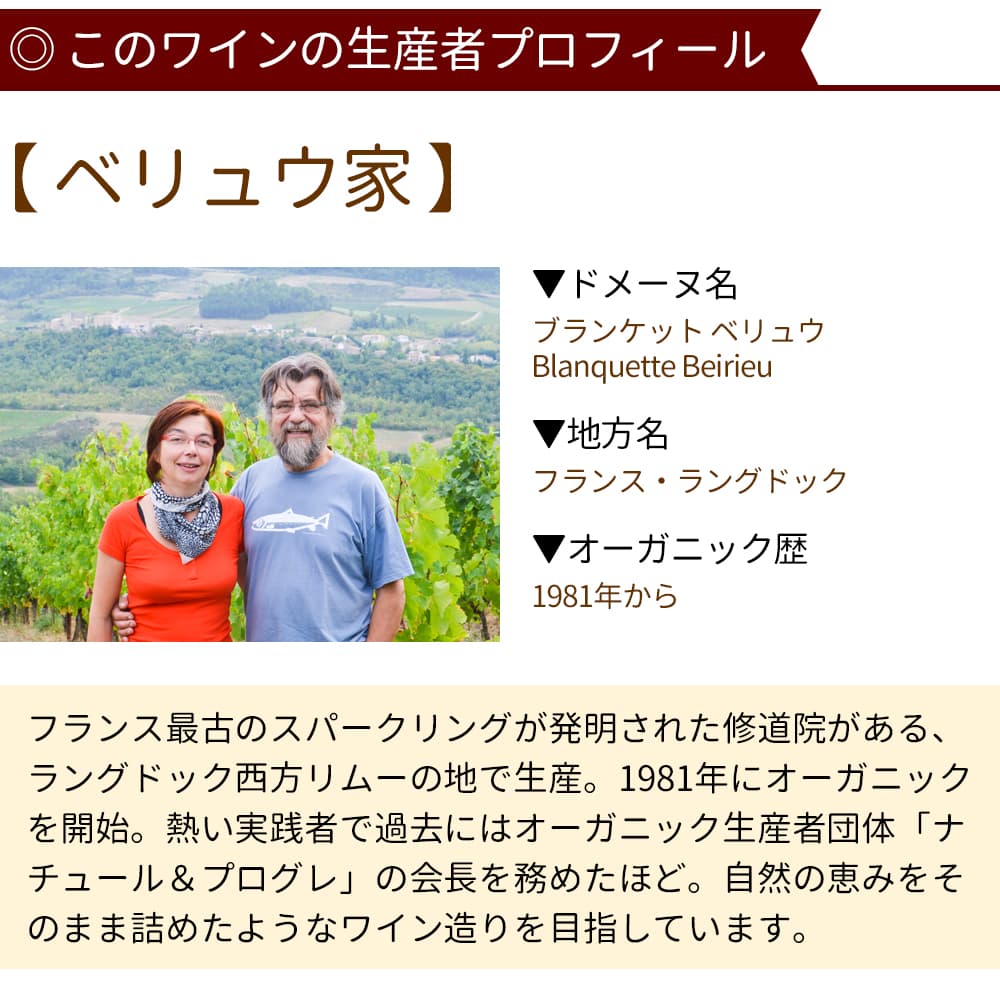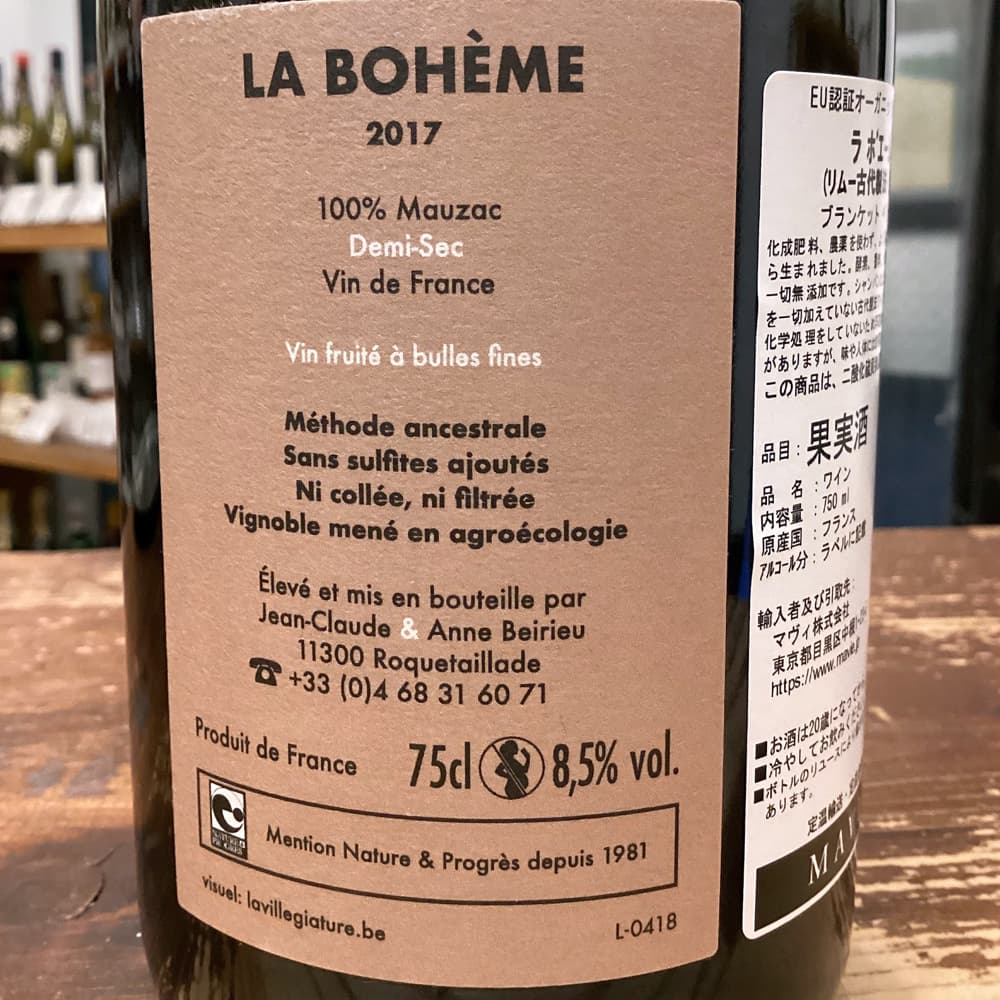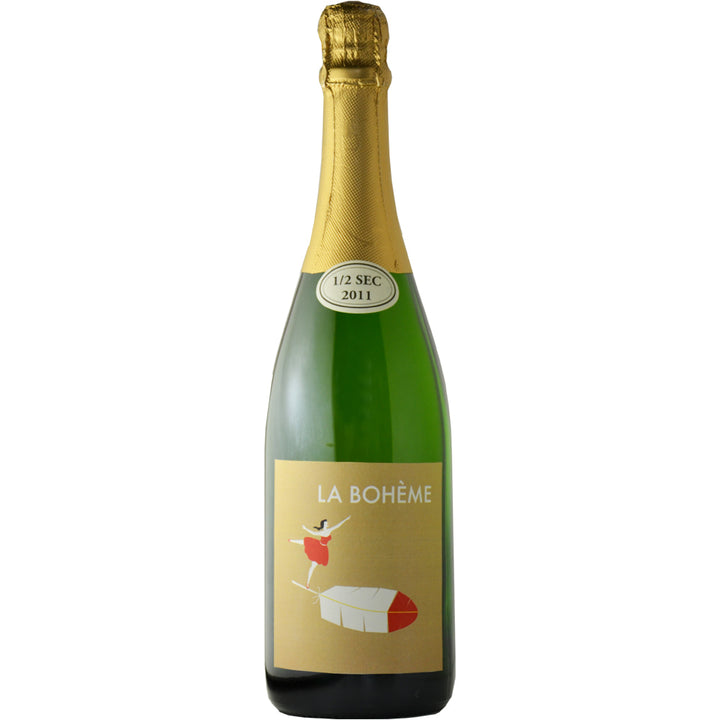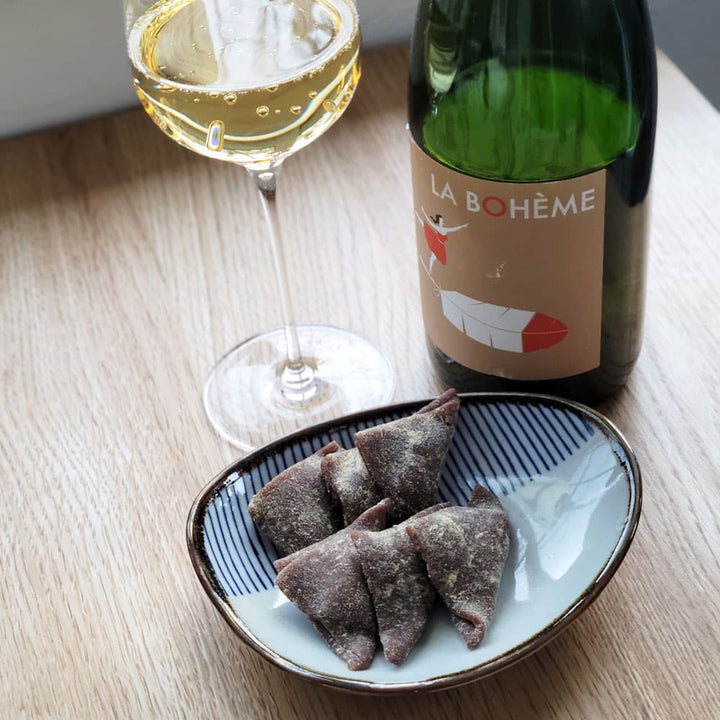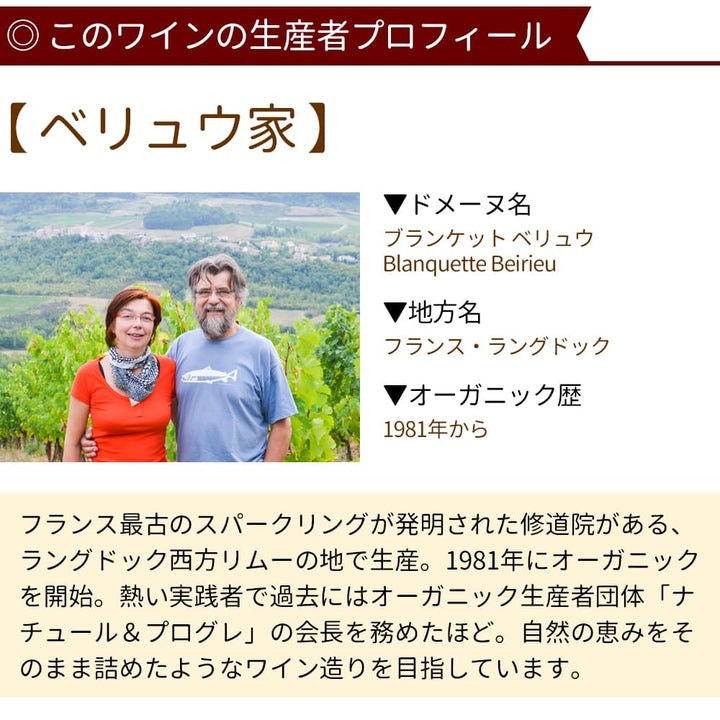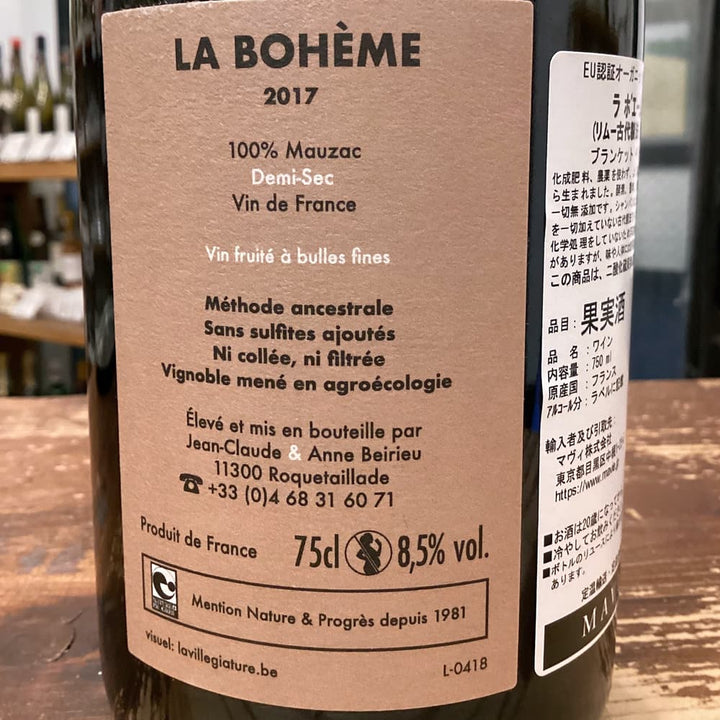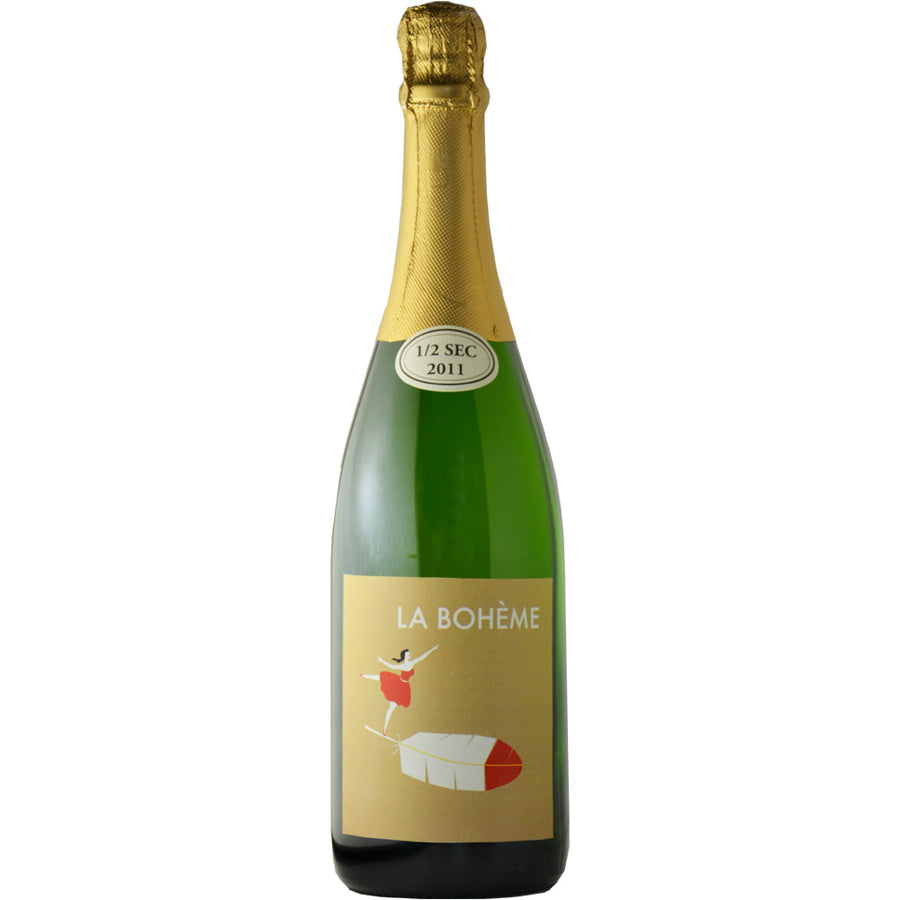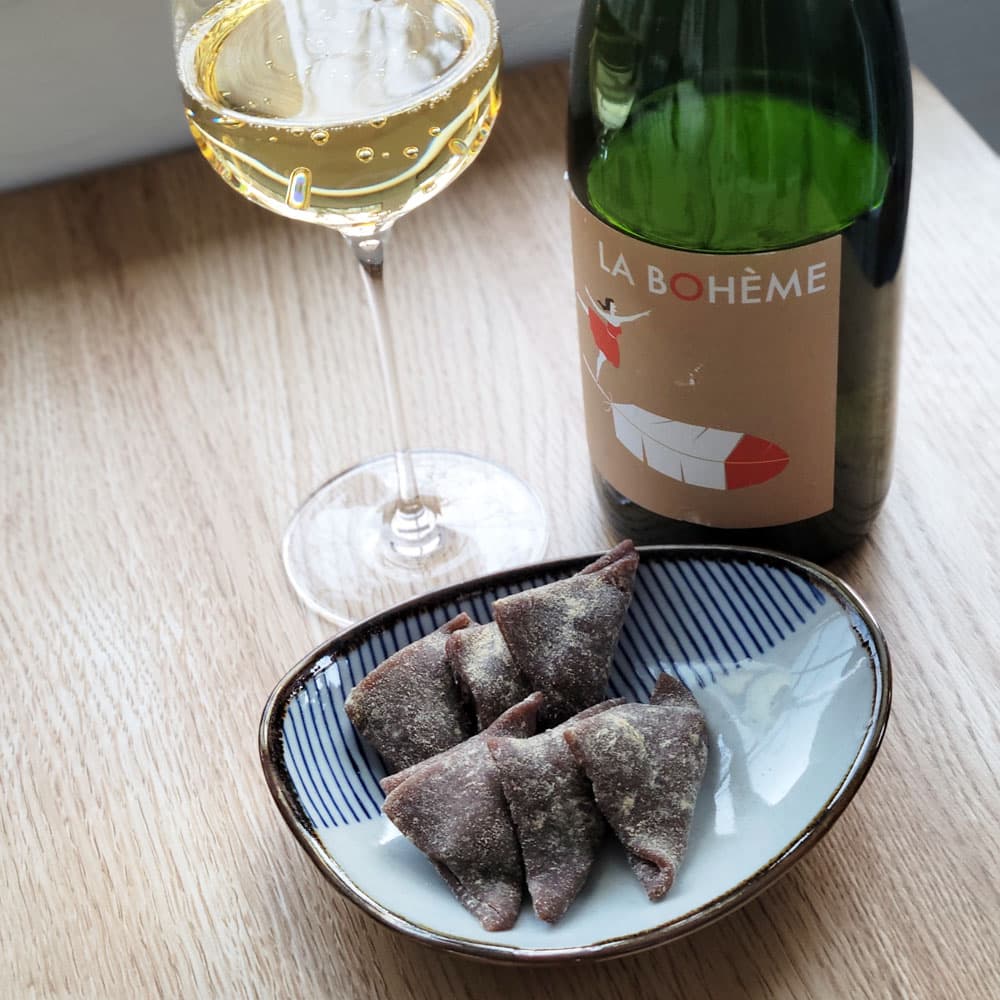A slightly sweet sparkling wine made in the Languedoc region of southern France. Made using an ancient method that does not add sugar, it has a gentle taste that retains the natural sweetness of the grapes. It has a flavor reminiscent of white flowers and apples, and has a low alcohol content of around 8%. The producer, Mr. Belleu, is a passionate organic winemaker who was also the former president of Nature et Progres. This is a carefully crafted organic wine made without the addition of any antioxidants.
Wine Details
- Type: Sparkling (Demi-sec, slightly sweet)
-
Origin: Languedoc, France
-
Manufacturer: Bellou Family
-
Capacity: 750ml (full bottle)
-
Product name: Fruit wine
Taste
Unlike champagne, this is an ancient method that does not add any sugar. This gentle flavor is created by using grapes with a specific sugar content grown in the dry climate of southern France and made using traditional methods. Because it has a low sugar content, it is recommended for women and those who do not usually drink much wine.
It has a white flower aroma and apple flavor, and is refreshing and delicious to drink with just the right amount of acidity.
Grape varieties (click on the variety name to go to the explanation page for each variety)
Mozac
Food that goes well with wine
Hazelnuts, aperitif biscuits, sables, punnets
La Boheme (Ancient Limoux Recipe) Foods that go well with sparkling wine
About the producers, the Bélyt family
Blanket Beiriu (Beiriu Family) - Blanquette Beiriu
Organic history: Since 1981
It is located in Limoux, west of Languedoc, where the monastery where the oldest sparkling wine in France was invented is located. Mr. Belleu purchased a vineyard in his hometown in 1980, and converted to organic farming the following year in 1981. The reasons for this were 1) for personal pleasure, 2) to protect the earth, and 3) to provide a high-quality product that is closer to the relationship between producers and consumers than ever before. He aims to make wine that is as if it were packed with the blessings of nature.


